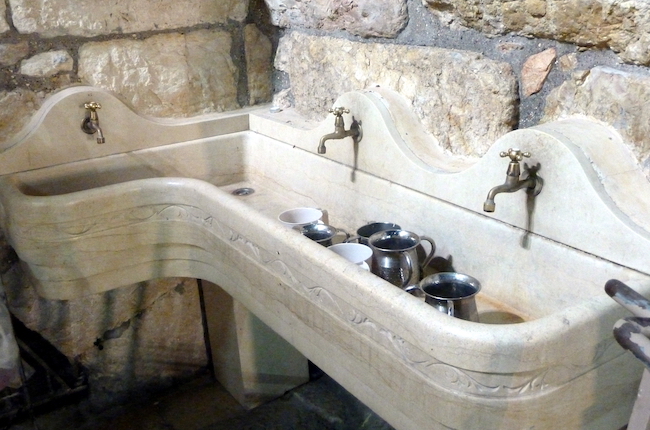The Zohar elucidates more on the nature of the impurity that rests on one’s hands each morning: “The secret of the mitzvah of netilas yadayim is as follows: There isn’t a person in this world who does not experience the taste of death each night. While a person is sleeping, his neshamah leaves his body, and a spirit of impurity rests on him. Upon the return of his soul, the impurity leaves his body, but a small amount remains on his hands, making it dangerous to touch one’s eyes or other orifices. When a person washes his hands the impurity departs, and he is considered to be holy” (Zohar Vayeshev 184b as cited in Beis Yosef 4:8-11).
We can infer from this Zohar that the essence of netilas yadayim is to remove the spirit of impurity that rests on one’s hands each night. Although the Zohar contains some of the deepest secrets of the Torah, it is not always the final word in halachah. Nonetheless, regarding the mitzvah of netilas yadayim, many of the halachos stem from the Zohar.
Due to the implications of the Zohar’s explanation regarding the dangerous impurity that rests on one’s hands, a person should try to remove this spirit as quickly as possible, for the spiritual ramifications of neglecting to remove this impurity are extremely severe. If possible, a person should not even get off his bed before he has washed his hands. For this reason there are those who prepare a bowl and a washing cup filled with water near their beds (negel vasser) each night (Mishnah Berurah 1,2).
When washing for bread, if a person pours a revi’is of water on each hand, it is sufficient to wash each hand once. Since many people are unfamiliar with this halachah, and according to the Vilna Gaon one must wash an additional time, many people today have the custom to always wash each hand twice (heard from Rav Moshe Sternbuch). However, when removing impurity, everyone agrees that one must pour water on each hand three times (Shulchan Aruch 4,2), and according to the Gra one must add a fourth (Mishnah Berurah 4:8,10).
Based on the Zohar’s teachings concerning the impure spirit on one’s hands, this impurity is transfered to the water, rendering it a spiritually dangerous entity. As a result, a person should not get any benefit from this water. Rather, he should spill it out in a place where people will not come into contact with it (Shulchan Aruch 4:8-9).
Text Copyright © 2012 by Rabbi Daniel Travis and Torah.org


